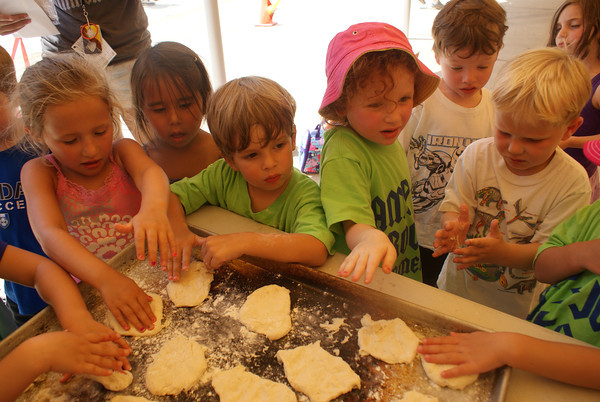
It’s Been 24 Years
The American Disabilities Act (ADA) was signed into law back in 1990 to ensure that people with disabilities were not discriminated against for employment and that accommodations were made to provide physical access to facilities. As a country we have made great strides over the last 24 years, but by no means have we fully accomplished the goal. One can look at the employment of people with disabilities and identify model companies that have and are making a difference. One can look at advances in schools and progress toward more inclusive classrooms. One can look at physical access accommodations that are for the most part universally available.
All this being said, the true reality is that we as a society still have a long way to go. Every day, children with disabilities and their parents are faced with their child not being able to participate. It usually is not because a group or organization does not want to include a child with a disability. The opportunities are not there because most do not know how and are concerned that they cannot properly support or handle potential challenges. They are concerned that they will fail the expectations of the child, the parents, and others that attend their programs.
The National Inclusion Project’s mission is the inclusion of children with disabilities. Our focus is to open doors so that a child with a disability has the opportunity to participate in typical activities with their peers. With a concentration on out of school time programs, the Project has worked with community organizations around the country to help remove any concerns through training, support, and life examples of how to include children with disabilities. We do not ask nor do we want an organization to change their programs totally or create specific activities for those with disabilities. We work to help them understand that through slight modifications most children of varying abilities can be included and that the most important aspect of any program is to get to know the child. To treat each individual the same, with understanding and respect. By getting to know the child and having open communications with parents, programs will have paved the way for a successful experience.
Working with many partners over the years ranging from after-school programs, parks and recs activities, summer day camps, residential camps, etc., we see that if the opportunity is provided and the leaders allow kids to be kids, great things can be achieved. Individualism will shine as children of all abilities get involved, participate, make friends, and have fun. Certainly there are occasional bumps in the road (which happen in all inclusive and exclusive opportunities), but the long-term benefits far outweigh any temporary setback.
One of our JCC partners went from exclusive to inclusive. “In the past, the Levin JCC’s Camp Shelanu had ‘accidental inclusion’ – there were campers with disabilities who attended, but with no extra staff, no training, and no accommodations. Campers often ended up on the sidelines – in the room with their group but not really participating, or by themselves being ‘babysat’ by a staff person,” said Madeline Seltman.
“With the help of the National Inclusion Project, Camp Shelanu’s staff were all trained in the philosophy that ALL campers can succeed and make friends, and given the tools to help make that happen. One camper’s mom said that Camp Shelanu, with its supportive inclusion program, was the first time her son wanted to go back to a camp on Tuesday morning!”
The social inclusion of children will make for a much better society tomorrow. Kids participating in various recreational activities today participate in play together despite differences which will lead to better understanding and acceptance in the future. Friendships developed in a play-based environment are extending beyond the boundaries of a given program. Kids develop a sense of belonging that will become an expectation, not just on the playground or at camp but in all aspects of life. Parents will see a difference and seek to be more involved with their community.
The National Inclusion Project believes that no one should sit on the sidelines! If your organization is not inclusive or are not taking the steps to become inclusive, what are you waiting for?
Jerry Aiken is the Executive Director of the National Inclusion Project. The National Inclusion Project serves to bridge the gap that exists between young people with disabilities and the world around them. They partner with communities and programs to teach others how to be inclusive so that kids with and without disabilities can experience lifelong benefits. By driving the movement for social inclusion in after school programs, summer camps, and in the classroom, children of all abilities learn, play and serve together. To learn more, enjoy this video or follow NIP on Twitter
About the author Jerry Aiken is the executive director of the National Inclusion Project.
Stay Included
To stay up to date on our most recent advocacy efforts, events and exciting developments, subscribe to our newsletter and blog!





















